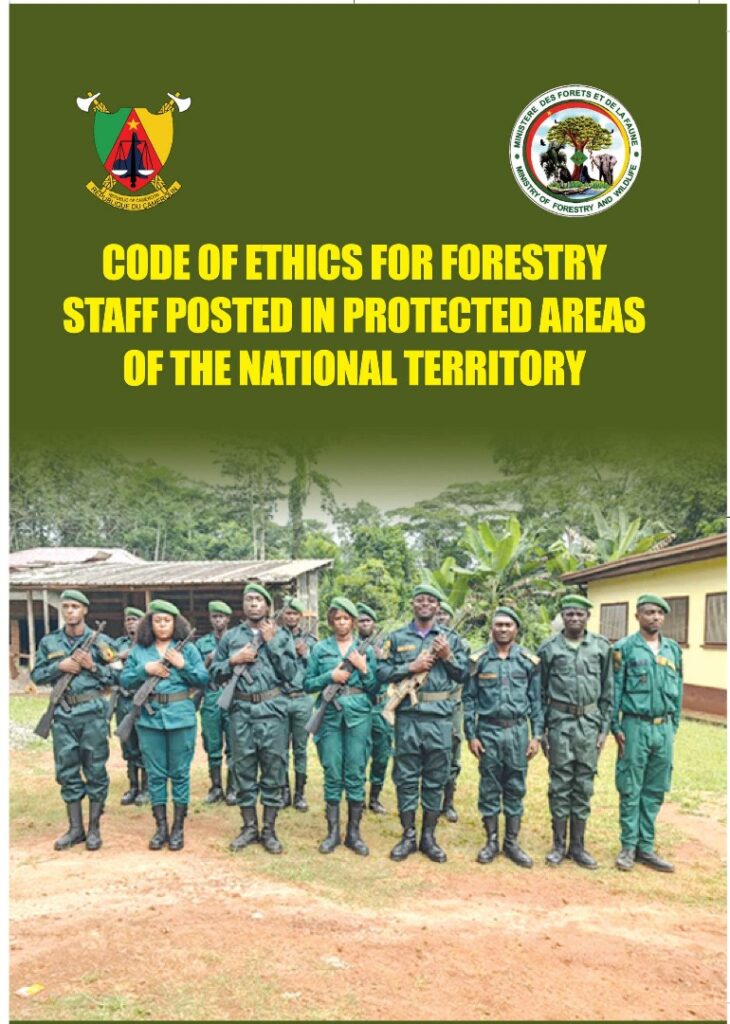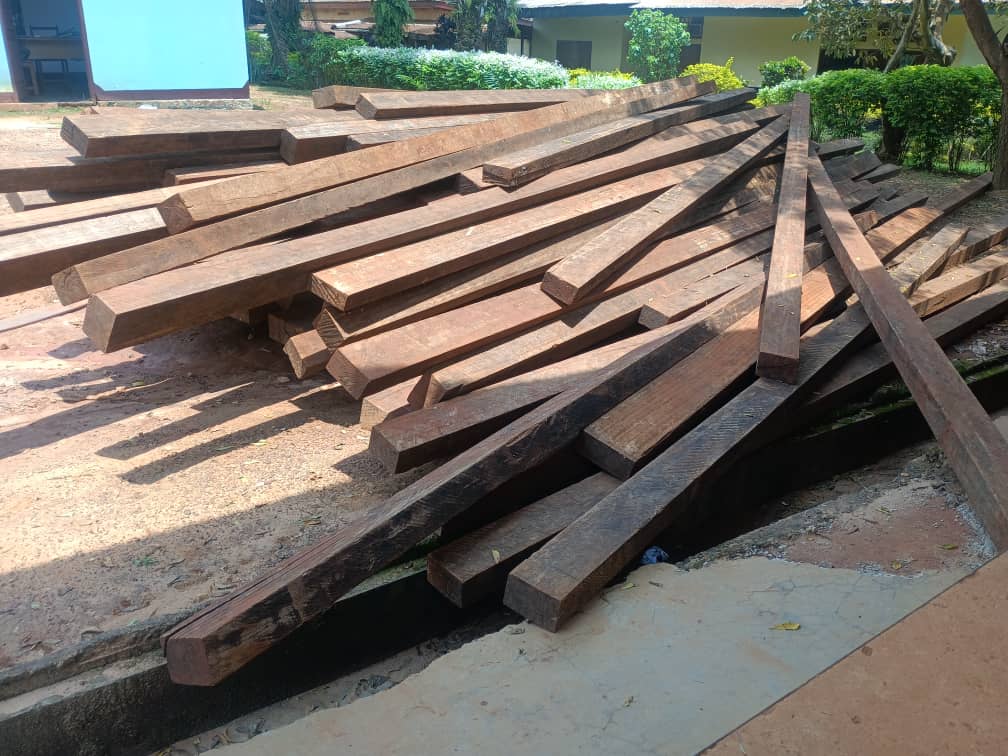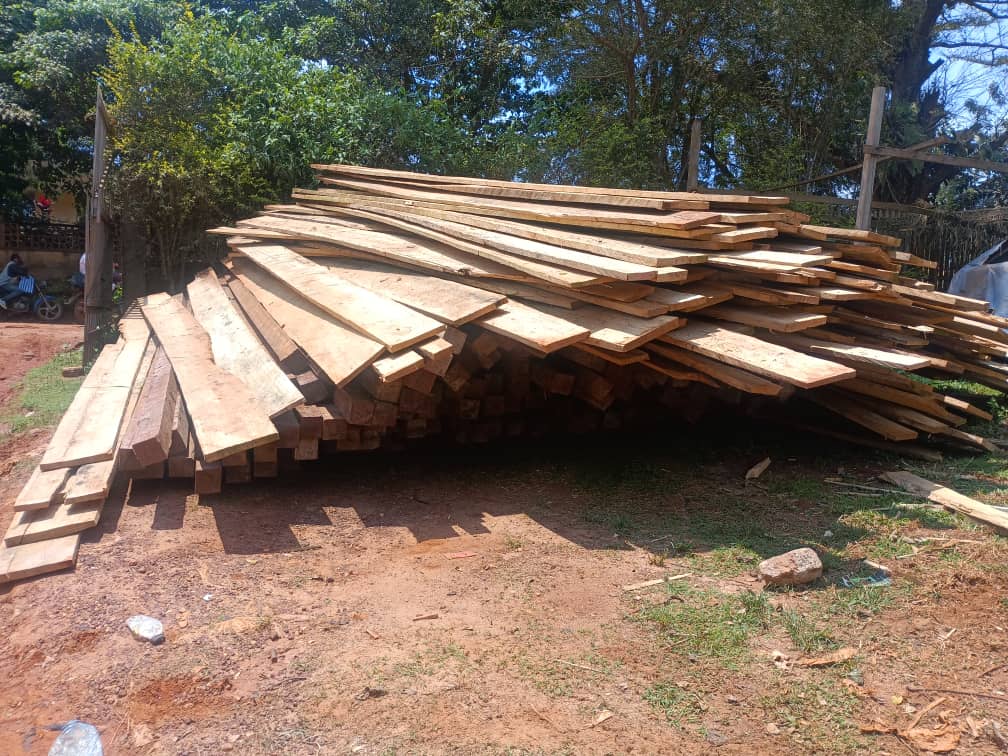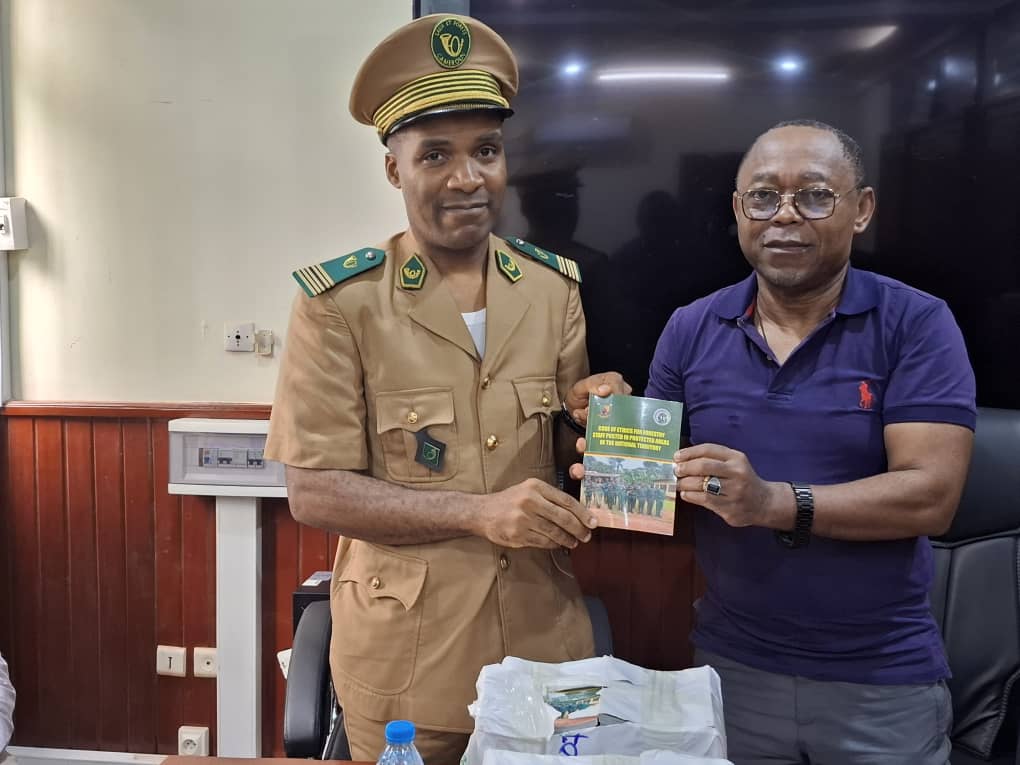By Leocadia Bongben
The Ministry of Forestry and Wildlife (MINFOF) and the World Wide Fund for Nature, WWF Cameroon, have joined forces to raise awareness on a new code of ethics and professional conduct for forestry staff in protected areas and the fight against environmental crimes in conservation areas.
Eco-guards used to do their job without a professionally specialized code of conduct that outlined their ethics and the penalties for noncompliance. They were, therefore, likely to carry out their responsibilities with a lack of accountability, honesty, and professional secrecy.

Indigenous people (the Baka) complained of harassment from eco-guards, among other human rights abuses. Recognized as having some of the riskiest jobs in conservation, protecting the world’s extraordinary resources from poaching and other illegal human activities, some lapses were observed as eco-guards lacked a referral for their activities.
In March 2024, the Minister of Forestry and Wildlife, Jules Doret Ndongo, signed the referral document, produced with support from WWF in consultation with various ministries, conservation agencies, and community representatives.
There is hope for change, as the code was presented and distributed to administrative authorities, technical and financial partners, civil society organizations, and community representatives during a meeting in Bertoua on July 16. The awareness campaign and distribution of the code are expected to continue to other towns across the country.
Alain Ononino, WWF Cameroon Country Director, emphasized the importance of the code concerning the respect of human rights in conservation. “As WWF, we are promoting inclusive conservation that brings together all the actors—authorities (MINFOF), law enforcement officers, the judiciary, and representatives of the local population and indigenous peoples,” Ononino says.
The adoption of the Code of Conduct is a significant milestone in standardizing and professionalizing eco-guards’ work. It strengthens biodiversity conservation, reduces conflicts between eco-guards and local communities, and promotes integrity and respect for human rights. The Code also regulates patrolling, monitoring, and enforcement practices.
For Georges Mouncharou, Director of Cooperation and Programs at MINFOF, “the code is a response to eco-guards’ requests for a form of positive sanction and deterrent measures so that they can become a model for the implementation of the conservation policy and combat environmental crime.”
An initiative to fight environmental crimes
Within the same context of inclusive conservation, WWF launched an initiative to combat environmental crimes dubbed ‘Contribution to enhanced protection for civil society organizations that collaborate in the detection and reporting of suspected environmental crimes,’ a collaboration with INTERPOL.
Illegal logging, poaching, and wildlife trafficking pose a serious threat to ecosystems, iconic wildlife, and the livelihoods of local communities. Despite the existing legal arsenal, law enforcement challenges, including corruption, limited institutional capacity, and inadequate resources, hamper effective action.

The official launch of the project provided an avenue to evaluate the environmental crime situation in the project intervention zone. Halla Alhaji, MINFOF Delegate for the Boumba and Ngoko Division, said illegal cross-border logging is a major environmental, economic, social, and security concern in the East Region, particularly in the Moloundou sub-division that shares boundaries with the Lobeke and Nki National Parks. Halla cites a study by the Center for Environment and Development (CED) revealing that 60 percent of illegal logging takes place in forest management units (FMUs) and 40 percent in plantations, with economic losses for the state. He said illegally harvested wood is sent to neighbouring Ouesso and Brazzaville.
Following a 10-month monitoring of illegal activities in the area (September 2024 to June 2025), 11,599 wood species, 837,692 m³ of fuel, and other items were seized. Also, 10 camps belonging to poachers were destroyed, while two Russian-made hunting rifles, 21 bullets, and 4.5 rolls of cable were seized from poachers. Over 40 suspects (including 22 poachers and 19 illegal loggers) were arrested and arraigned before competent authorities.

Despite the efforts deployed, the local MINFOF strategies to combat illegal logging are constrained by limited funding. Given that indigenous peoples and local communities depend largely on natural resources for their livelihoods, the destruction of these resources compromises their way of life. The decline of flora and fauna affects economic sectors such as tourism, which generates significant revenue for the country.
To reverse the trend, the project aims to improve monitoring, early warning, and advocacy systems. By strengthening the role of CSO actors in identifying and reporting environmental crime-related acts to law enforcement. It will also bolster international collaboration and law enforcement efforts to curb criminal activities.
During the launch, the project stakeholders were enlightened about their roles and responsibilities, the next steps, and the opportunities for cooperation with other landscape conservation stakeholders. The three-year project will be implemented in Cameroon segment of the two landscapes: Tri-National Dja-Odzala- Minkebe, TRIDOM and the Tri-National de la Sangha, TNS.

